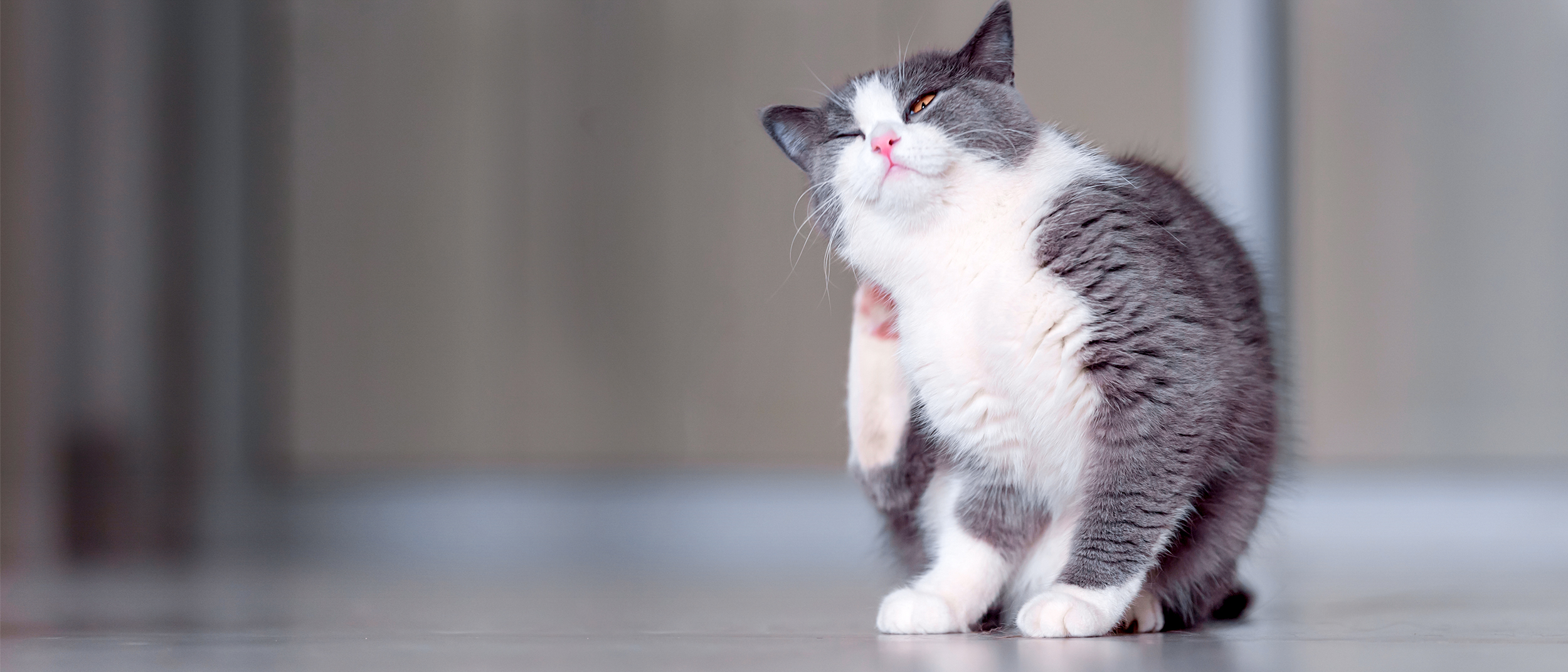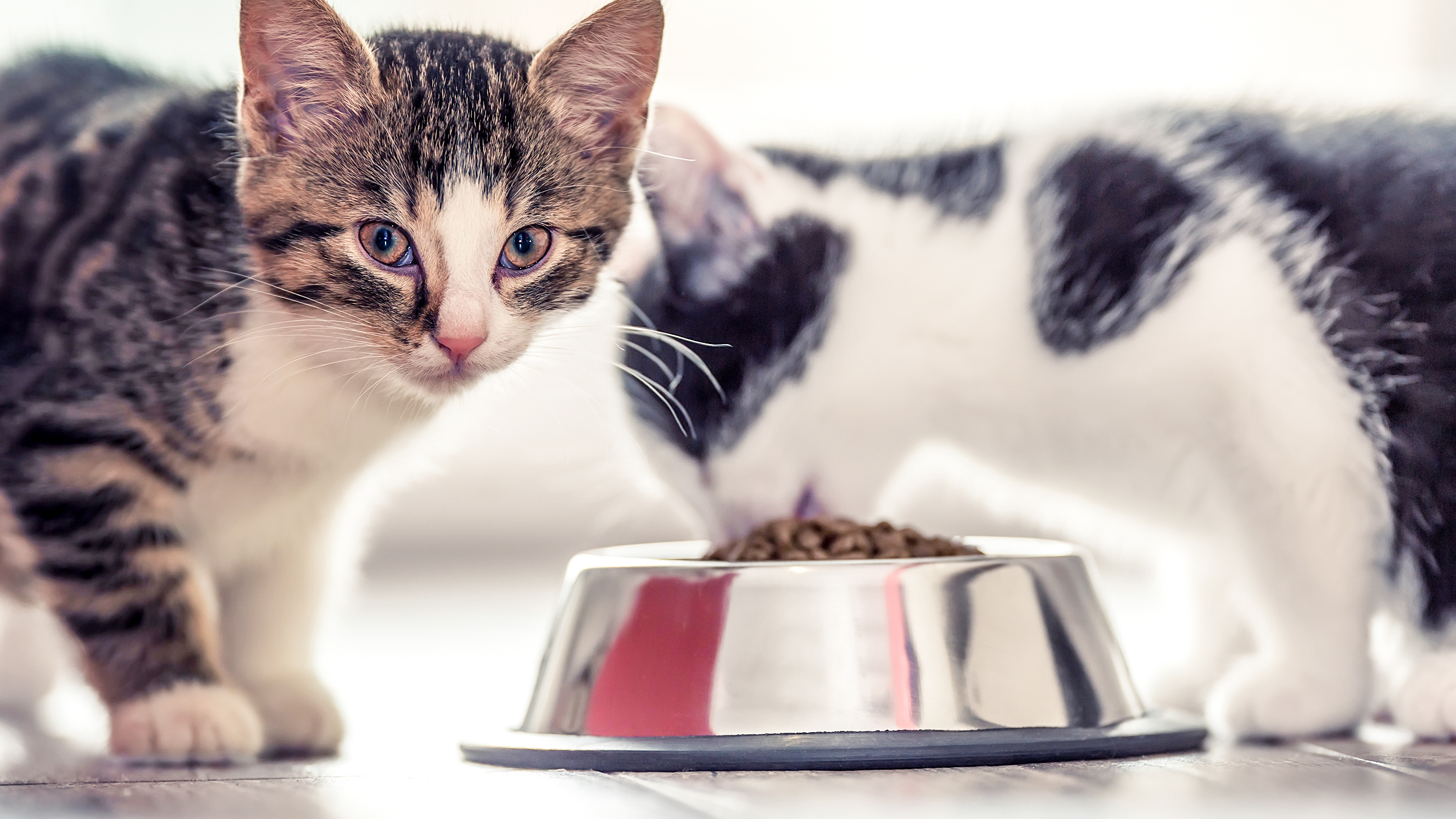Why does my cat have itchy skin?

An important part of a cat’s hygiene regime is regular grooming, but if you’ve noticed your cat scratching or itching themselves more than normal, there may be a deeper underlying cause.
Why do cats scratch?
If a cat feels discomfort on their skin, they will automatically try to relieve the irritation with scratching. However, a cat is also likely to groom that part of their skin as another method of alleviating the itching; their rough tongue can ‘scratch’ their skin easily, and licking is a way of cleaning the area of any potential irritants. A cat which is frequently or aggressively scratching, itching or grooming themselves is likely to be suffering from something which they cannot get rid of easily.
Parasites and your cat
If your cat has a parasitic infection or a reaction to a parasite, it’s likely they will begin to scratch themselves frequently. Many may not show obvious signs of carrying parasites, but if your cat is hypersensitive to their bites it can result in intense scratching. Fleas are the most common parasite among cats, but they can also suffer from a number of other parasites. Scabies is the result of another type of parasite, a mite, which causes extremely itchy lesions on your cat’s forehead and edges of their ears.

Your cat and skin problems
Your cat may be excessively scratching due to a skin problem, rather than a parasite. This could be a fungal infection, such as ringworm, which enters the skin via a lesion, bite or direct contact, and then begins to irritate the outermost layer of the skin. Another cause of scratching can be acne, which causes itchiness and shows as inflamed, red lesions commonly found on their chin.
If your cat’s diet isn’t fulfilling all their nutritional requirements, it may result in a poor-quality coat and skin which in turn can cause itching. For example, if their diet doesn’t include the right combination of omega 3 fatty acids and other vitamins to help their skin retain moisture and strengthen its role as a barrier to irritating material, it may dry out, flake and cause your cat to scratch.
Those cats that regularly go outside may end up scratching vigorously to remove environmental debris which has stuck to their fur or skin, such as splinters or seeds. If these get lodged into your cat’s coat, it will groom itself frequently as an attempt to get it out.
Allergies and your cat
Aggressive scratching and grooming can also be caused by an allergy, whose symptoms manifest themselves in your cat’s skin. There are three main causes of allergic reactions in cats: fleas, food and environmental allergens. Some cats can develop an allergy to fleas, which results in their immune system over reacting to a flea bite and causing irritation. Certain environmental allergens, such as grass seeds or dust mites, may also aggravate your cat’s system.
Cats can also be allergic to specific components of their diet, which develops through over exposure; rather than treating the element as harmless, the immune response cells in their system are wrongly triggered, leading to itchiness.
A cat’s grooming process is an important way for it to keep itself clean and healthy, but it should never become excessive. Visit your vet if you see your cat repeatedly scratching, itching or licking itself, and they’ll be able to advise you on the best course of action.
Find a vet
If you have any concerns about your cat’s health, consult a vet for professional advice.
Like & share this page